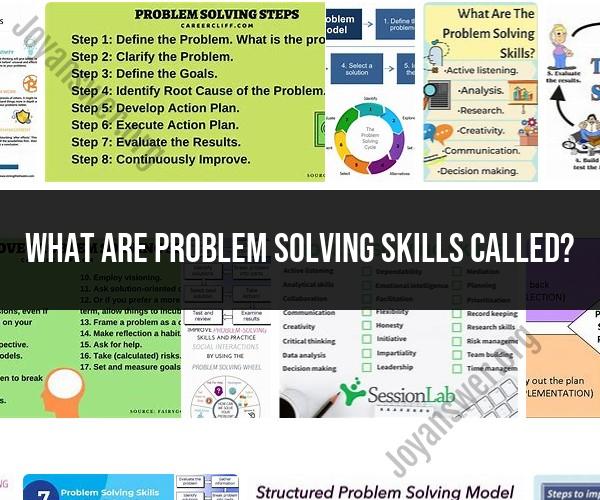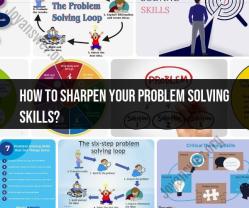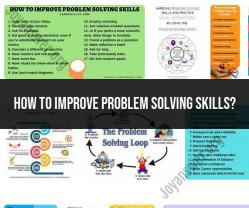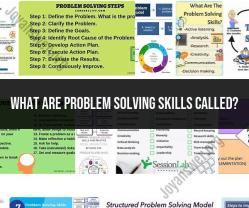What are problem solving skills called?
Problem-solving skills are often simply referred to as "problem-solving skills." However, they can also be described using various other terms and attributes, depending on the context and the specific aspects of problem solving being emphasized. Here are some alternative ways to refer to problem-solving skills:
Critical Thinking: Problem solving often involves critical thinking, which is the ability to analyze, evaluate, and reason through complex issues and make informed decisions.
Analytical Skills: This term highlights the importance of analytical thinking in breaking down problems into smaller components for examination.
Decision-Making Abilities: Problem solving often culminates in making decisions or choices, so strong decision-making skills are a key component.
Creative Problem Solving: Emphasizes the use of creativity and innovation to find unique and unconventional solutions to problems.
Troubleshooting Skills: Commonly used in technical contexts, this term refers to the ability to identify and resolve issues or malfunctions.
Solution-Oriented Abilities: Problem solvers focus on finding solutions rather than dwelling on the problems themselves.
Conflict Resolution Skills: In interpersonal contexts, problem solving may involve resolving conflicts or disagreements.
Practical Problem Solving: This term underscores the practical application of problem-solving skills to real-life situations.
Adaptability and Flexibility: Being adaptable and flexible is essential when solving problems in dynamic or changing environments.
Systematic Problem Solving: Refers to the structured and organized approach to addressing problems, often involving step-by-step methodologies.
Logical Reasoning: Problem solving frequently requires logical thinking and deductive reasoning to reach sound conclusions.
Innovative Thinking: Encourages creative and out-of-the-box thinking to discover novel solutions.
Complex Problem Solving: Reflects the ability to tackle intricate or multifaceted problems effectively.
Interpersonal Problem Solving: Pertains to the skills needed to navigate and resolve issues in relationships or group settings.
Problem Identification Skills: The initial step in problem solving involves accurately identifying and defining the problem.
Research and Information-Gathering Skills: Gathering relevant information and data is often critical to solving complex problems.
These terms highlight different facets of problem solving, but they all encompass the ability to analyze challenges, develop strategies, and implement solutions effectively. Strong problem-solving skills are valuable in many aspects of life, including education, work, and personal development.






